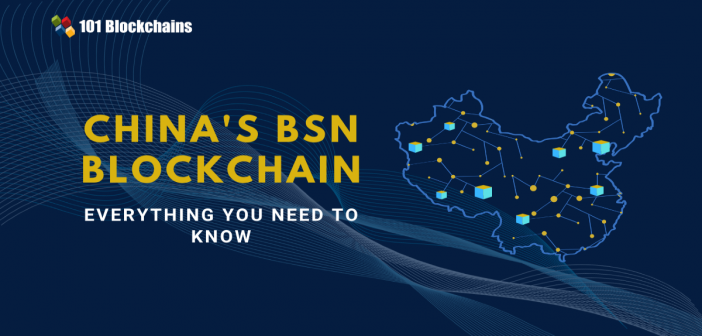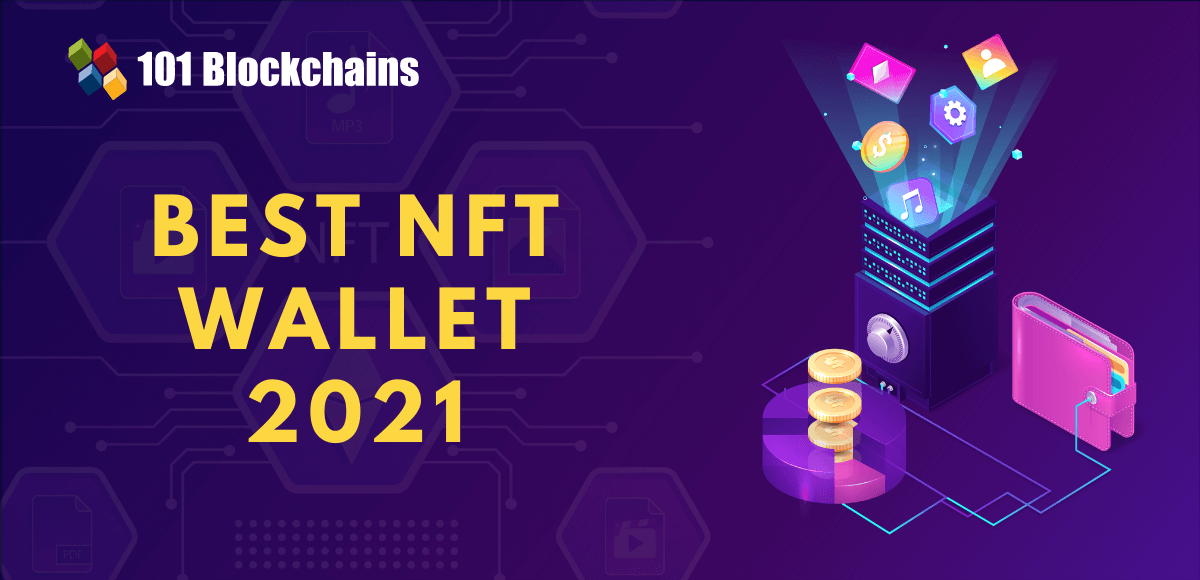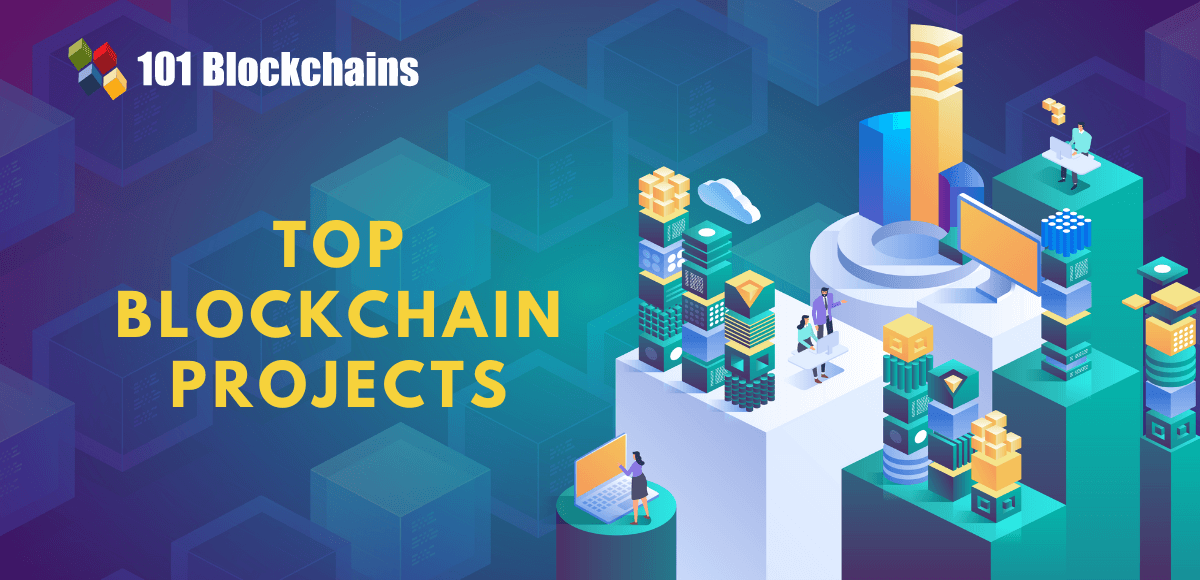Learn how blockchain truly works, master key definitions, and uncover what makes smart contracts so "smart." Dive into the fundamentals, gain valuable insights, and start your blockchain journey today!

Reviews
Diego Geroni
on February 26, 2021
China’s BSN Blockchain: Everything You Need to Know
The arrival of blockchain technology created new waves of change in the world of information exchange and financial transactions. The use of blockchain in governance applications is also one of the prominent reasons for its rising popularity. However, the existing blockchain technology is similar to the internet in its early stages. With various underlying frameworks and structures alongside the higher cost of application development, deployment and maintenance, the existing blockchain ecosystem needs improvement. The BSN Blockchain has emerged as the foremost solution for creating a global blockchain infrastructure.
Backed by the Chinese Government, BSN or Blockchain Service Network was launched in April 2020 for general availability. The China BSN blockchain network aims to support SMEs in China for blockchain adoption. Therefore, the interest around BSN has been developing considerably in recent times. The following discussion aims to present a detailed guide on China’s Blockchain Service Network.
Build your identity as a certified blockchain expert with 101 Blockchains’ Blockchain Certifications designed to provide enhanced career prospects.
Origins of Blockchain Service Network
Before reflecting on the fundamentals of China BSN blockchain, it is important to understand the factors that went behind its foundation. BSN is the national initiative of China for integrating blockchain projects throughout big businesses, government as well as emerging markets.
BSN was tailored as the backbone for the interconnectivity infrastructure across mainland China, private businesses, city governments and individuals in China as well as abroad. Basically, the founders of BSN Blockchain want to establish a new ‘Digital Silk Road’ for connecting China and the rest of the world.
 The evolution of any new technology such as blockchain shifts from diversification to unification, complexity to simplicity and high-cost to low-cost. Therefore, a worldwide universal blockchain infrastructure is essential for resolving various setbacks evident in existing blockchain technology. A global blockchain infrastructure such as China’s Blockchain Service Network or BSN could help in achieving the following objectives.
The evolution of any new technology such as blockchain shifts from diversification to unification, complexity to simplicity and high-cost to low-cost. Therefore, a worldwide universal blockchain infrastructure is essential for resolving various setbacks evident in existing blockchain technology. A global blockchain infrastructure such as China’s Blockchain Service Network or BSN could help in achieving the following objectives.
- Simpler processes for development and maintenance of blockchain environments
- Reduction in costs of blockchain application development, deployment and maintenance
- Adaptability for permissioned as well as permissionless frameworks
- Establishing a universal cross-chain and cross-framework data interchange
- Deploying blockchain applications to any cloud service at selected international location
- Authorizing users for accessing all applications with private keys and a single digital identity
- Enabling developers for leveraging any portal for deploying and managing their applications
Defining BSN
So, basically the BSN Blockchain emerged as potential ‘Internet of Blockchains’. In the simplest terms, BSN is a public network that can run across different cloud platforms, frameworks and portals for enabling easier and cost-effective development, deployment and management of permissionless and permissioned blockchain and applications.
The BSN includes a consensus order cluster service and public city nodes. Each city could develop one or multiple public city nodes linked through the internet for developing a national physical city node blockchain service network. Blockchain application publishers could now just deploy their application across multiple city nodes on the BSN.
Subsequently, participants could enter though the city node gateway, without any substantial cost. All the applications deployed on each city node would share server resources. In the case of high-frequency applications, city nodes could ensure automatic and intelligent allocation of individual peer nodes with high processing function. In the case of low-frequency applications, Blockchain Service Network or BSN can enable multiple applications to share single peer node.
Start your blockchain journey Now with the Enterprise Blockchains Fundamentals
The Value Proposition of BSN
The resource sharing mechanism helps in reducing the cost of resources by almost 20% to 33% of the costs associated with conventional blockchain cloud services. Traditional blockchain applications require creation and maintenance of individual consensus nodes alongside peer nodes.
On the other hand, the BSN network requires only one uniform consensus node cluster service. China UnionPay is responsible for development, creation, operations and maintenance of the uniform consensus node cluster service. In addition, the consensus node cluster service also offers services to every blockchain application on the city nodes.
One could also perceive BSN blockchain as an information infrastructure. The basic notion underlying BSN refers to the sharing of resources offered by public facilities developed by the city. Subsequently, the sharing of resources would lower the social costs. Blockchain application participants and publishers don’t have to purchase other additional physical servers or cloud services for building their own blockchain operating environment with BSN.
On the other hand, publishers and participants could use the uniform public services offered by BSN alongside the facility of leasing shared resources according to their requirements. Therefore, the blockchain application publisher as well as the participants can achieve considerable cost reduction with China BSN Blockchain. The cost-effectiveness factor of BSN is clearly evident in the lower annual costs for developing traditional consortium blockchain network environment.
Curious to learn about blockchain implementation and strategy for managing your blockchain projects? Enroll Now in Blockchain Technology – Implementation And Strategy Course!
Working and Architecture of BSN
Now that you have a clear impression of the origins, definition and value proposition of BSN Blockchain, let us reflect on BSN architecture. The main elements in the BSN architecture are public city nodes and the consensus order cluster services. These elements are linked through the internet. Application publishers could select a specific number of city nodes according to business requirements, bandwidth for each node, storage and transactions per second.
Subsequently, they can also allocate rules according to their rights and privileges for setting the application as a consortium or private blockchain. The publisher could also select any combination of city nodes for publishing unlimited applications.
In addition, application participants with the necessary permissions could access any city node deployed by the application for participating in the relevant business. Over the course of the entire process, application publishers as well as participants could combine their efforts for fostering innovation. Publishers and participants could also avoid the additional costs required for building and maintenance for own blockchain operations environment.
Key Components in BSN Architecture
BSN Blockchain is able to achieve such functionalities with the help of the components in its architecture. Here is an overview of the key components in the core architecture of BSN.
-
Public City Nodes
Public city nodes serve as one of the fundamental operational aspects in the Blockchain Service Network. The primary function of public city nodes basically refers to facility of system resources, including access control, computing abilities for blockchain applications, data storage and transaction processing.
Cloud resource or data center providers have ownership of each city node. The owners install public city node software in the cloud resources. After linking to the network, owners could develop a city node in the Blockchain Service Network or BSN.
After the creation of a node, the application publisher could search for the desired node in the portal. The application publisher can also purchase the node’s resources as one of the city nodes involved in the application’s deployment. Owners could add system resources at any time for increasing load capacity of city node. This is helpful when the utilization of the resources of a city node comes near the saturation point.
Depending on the quantity and subsequent need of operational applications, all city nodes could actively deploy desired peer nodes. Furthermore, a load-balancing mechanism helps in allocating high-performance peer nodes to high-concurrency applications such as decentralized finance applications. At the same time, other low-concurrency applications could share a single peer node. The advantage of such a mechanism enables the use of city node resources with maximum efficiency. The mechanism also reduces the overall running costs associated with the Blockchain Service Network.
In terms of principles, the BSN Blockchain is a multi-ledger, multi-ledger system. All applications deployed on specific number of city nodes use dedicated channel for processing transactions, storage and data communication. The complete isolation of channels allows considerable levels of privacy.
Want to know more about DeFi? Enroll now in Introduction to DeFi Course
-
Consensus Order Cluster Services
All the conventional federated blockchain applications need to deploy and maintain individual consensus order node. The consensus order node helps in finding the order of delivery of a transaction that has reached consensus to each peer node and written permanently in the ledger.
The consensus order node is an important component in the BSN Blockchain in its role as data processing hub of an application. BSN consensus order cluster services offers higher performance and concurrency for lowering the cost of operations and deploying blockchain applications. This node uses consensus algorithms to offer all these features in a fairer way.
The consensus order cluster services can adapt effectively to gradual rise in the capacity of BSN for business development. The consensus order cluster services could also adapt to the growth in concurrent transaction capacity in BSN.
Consensus order cluster services leverage two modes, distributed clustering and collective clustering for offering different resource configurations. In this way, the consensus order cluster services could also adapt to applications with different load specifications. As a result, they can ensure ideal optimization of overall running costs associated with BSN blockchain.
China UnionPay takes care of creating and operating consensus order cluster services. China UnionPay is capable of delivering highly cost-controllable, efficient, high-quality and trustworthy services for BSN applications.
The experience of China UnionPay in management of high-concurrency transactions is a clear testament of their efficiency. Furthermore, China UnionPay also promotes the development of financial regulations tailored for BSN. It actively advocates the creation of a regulatory mechanism for ensuring compliance of financial applications and transactions on BSN with Chinese rules and regulations.
-
Permission Management Chain
The permission management chain is also a significant component in the BSN blockchain. It is actually a fundamental, system-level chain that helps in managing relationship between role and permissions configuration of every application.
Deploying the permission management chain in each city node offers a permission management mechanism for all applications. The permission management mechanism is uniformly stored on the chain. In addition, it also leverages application-role-based control and comes under powerful control of developer.
Applications could define different classifications of application-role-based control management model according to the business characteristics. As a result, the different role participants could have distinct privileges for data processing.
The system can ensure implementation of data processing permission control and audits on the basis of internal ARBAC model of the application. The permission management chain in BSN Blockchain offers the consortium mode and centralized authority mode for organized management.
Stakeholder organizations in an application could participate jointly in the management of the application such as user access and cancellation privileges in the consortium management mode. This is a more efficient way to utilize practical blockchain use cases. The vote and resolution of consortium members is essential for tailoring mechanisms for allocation of participant privileges and rights.
The centralized management mode recognizes the application publisher as the sole administrative organization. The application publisher has to determine all the internal application mechanisms in the centralized management mode.
-
Smart Gateway
The final component in the architecture of BSN Blockchain, smart gateway helps in forming complex business logic. Blockchain technology involves shared ledgers, encryption algorithms and point-to-point transmission. So, it is difficult for participant organizations to deploy their complex business logic only through application chain code.
In most cases, participating organizations have their own business logic integrated with the chain. The link of their business system with the blockchain chain is helpful for effective integration of BSN with business operations. The smart gateway helps in offering the viable interface for using the BSN network in business operations and strategies.
Not sure how to build your career in enterprise blockchains? Enroll Now in How to Build Your Career in Enterprise Blockchains Course
Advantages of Blockchain Service Network
The most important aspect in any guide on BSN Blockchain would obviously reflect on its benefits. The benefits of Blockchain Service Network can adequately reflect on the opportunities that it can introduce in the global blockchain ecosystem. Here are some of the top advantages associated with Blockchain Service Network.
-
Cost Effectiveness
The foremost factor that draws attention towards BSN Blockchain is the cost efficiency. Developers don’t have to purchase cloud services individually or software server for developing and maintaining their personal blockchain system.
Public city nodes and the consensus order cluster services leverage principles of load-balancing mechanisms and resource sharing functionalities. As a result, BSN could offer long term, stable, reasonable priced services at high performance for blockchain applications. In addition, the minimal cost for chain building in China BSN Blockchain encourages individual developers and enterprises for accessing blockchain.
-
Reduced Threshold for Blockchain Application Development
BSN also offers another promising advantage in the form of lower threshold for blockchain application development. Many developers don’t have comprehensive fluency in blockchain-based programming languages.
Smart gateways as well as pre-built chain code create massive possibilities for developers. The new possibilities can enable developers to use BSN easily and integrate blockchain functionality in conventional business systems and introduce blockchain business models. In the long term, BSN can mimic traditional databases and the internet thereby serving as the basic choice for developers.
-
Easier Opportunities for Participation
BSN blockchain has also introduced better flexibility for participation of users in blockchain applications. In a traditional local area network model, various consortium blockchains require independent node operating environments. Furthermore, every consortium blockchain must have its unique identification certificate.
As a result, participating in blockchain application becomes a tedious, overly complicated and repetitive process. Users could share the same identification certification alongside accessing unlimited number of applications at all times with BSN. Upon mutual recognition between authorities of applications, users could execute data interactions between chains efficiently.
-
Flexible and Secure Access Modes
The most important benefit associated with the BSN blockchain refers to the flexible access modes. Application participants could easily gain access to city nodes nearby through the internet or dedicated line connections for accessing BSN. Majority of consortium blockchain applications are payment-based or finance-related.
So, financial systems need transmission of data over a dedicated line for ensuring information security. Majority of conventional cloud service providers leverage centralized data centers due to high costs of cross-region and cross-province dedicated lines. The city nodes in BSN are also available in all cities nationwide and all city nodes offer support for same-city dedicated line access. Therefore, BSN can ensure lower costs in comparison to cross-region or cross-province dedicated lines and introduce blockchain in payments.
Aspiring to make a lucrative career as a blockchain engineer but not sure how? Check the detailed guide Now on How To Become A Blockchain Engineer
Difference Between BSN and Blockchain Cloud Services
The final aspect in an introductory guide will obviously point to the differences between BSN Blockchain and Blockchain Cloud Services. Here is a detailed table outlining the differences between BSN and blockchain cloud services.
| BSN | Blockchain Cloud Services |
|---|---|
| BSN is a platform compatible across different cloud platforms, portals and frameworks | Blockchain cloud services feature only few frameworks in the same cloud with a single portal |
| BSN can enable all applications for easy interchange of data through different frameworks and clouds | All applications are isolated and deployed individually with different encryption algorithms and frameworks with blockchain cloud services |
| BSN blockchain allows a simpler learning curve | Developers need comprehensive blockchain knowledge and programming abilities for working with blockchain cloud services |
| BSN does not imply the requirement of a blockchain system administrator | Blockchain cloud services require the presence of a system administrator for maintaining the production environment |
| BSN enables one user for leveraging one private key for accessing all permissioned applications deployed on any PCN with one gateway and a set of APIs | Users should have one private key, one set of APIs and one gateway each for permissioned applications that they want to access |
Final Words
On a concluding note, it is clear that the BSN Blockchain is a promising improvement over existing blockchain technology. Someday or the other, blockchain had to evolve into a simpler, accessible and cost-effective variant. BSN has come up with answers to some of the notable concerns with conventional blockchain cloud services.
The improvements in BSN are primarily focused on sharing of resources to achieve cost reduction without sacrificing security and performance.
In addition, the flexibility of BSN will also serve as one of its prominent benefits. Within a year of its launch, BSN has entered into partnerships with notable names in the world of blockchain. Explore our blockchain courses to learn more about blockchain technology right now!






